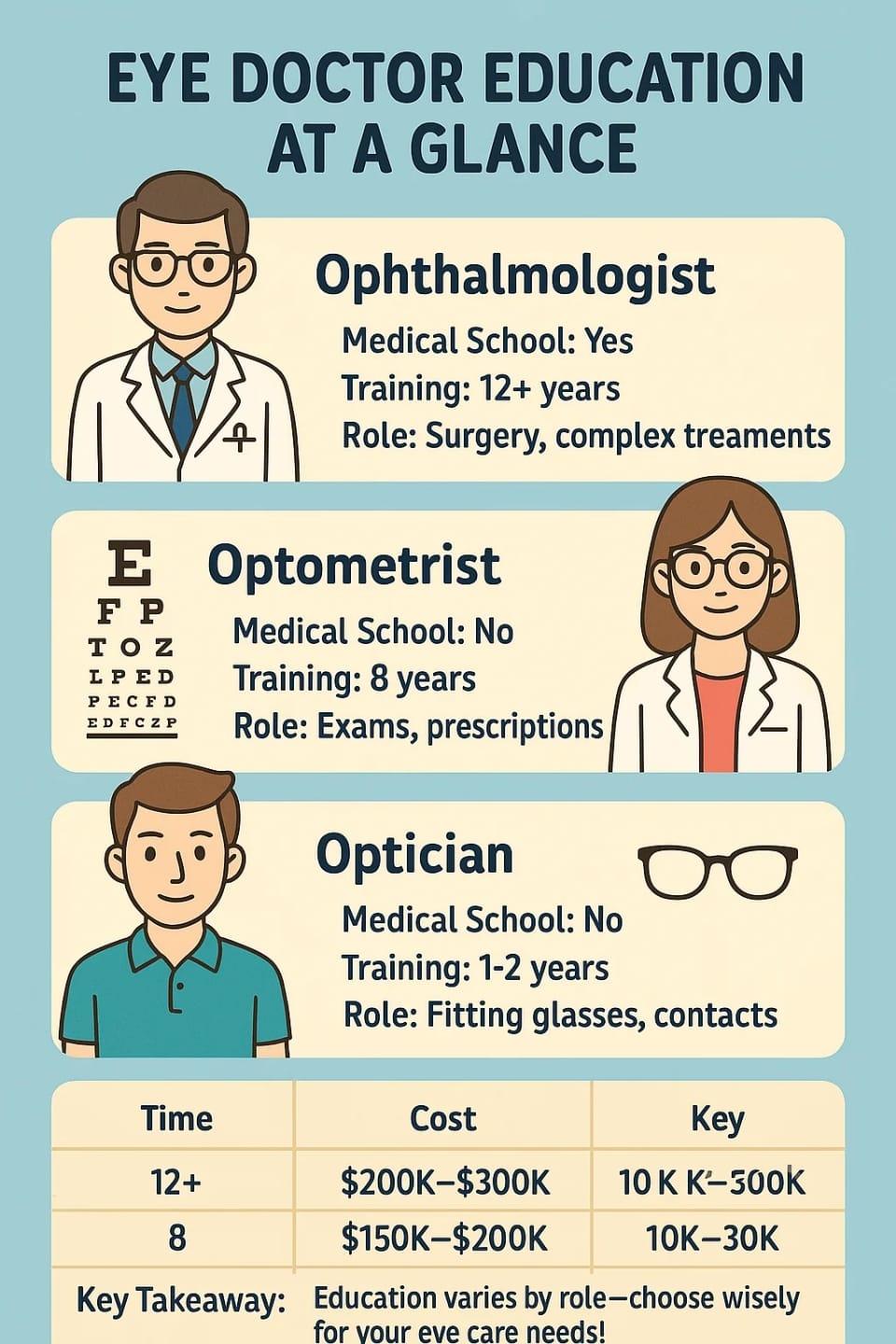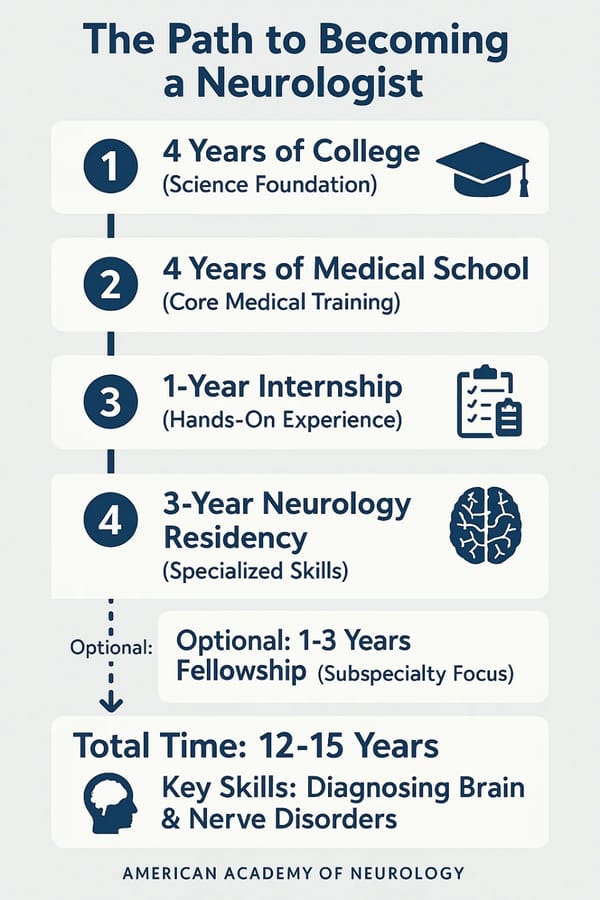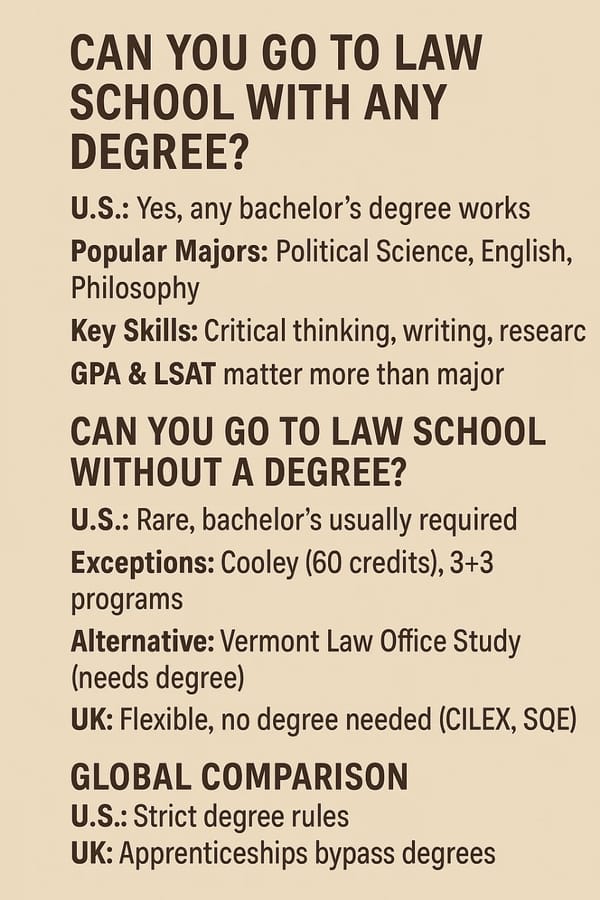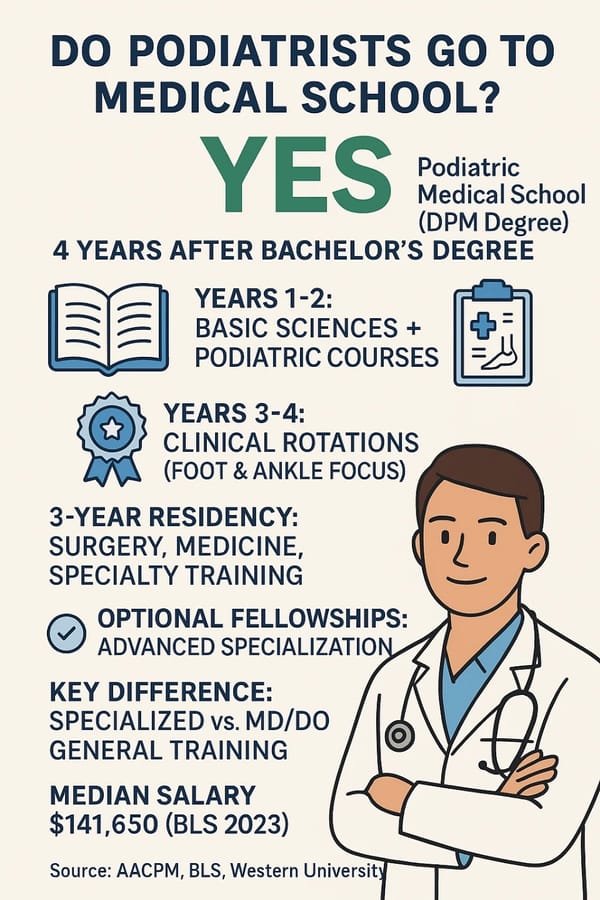Are you seeing clearly? The world of eye care is more complex than it appears, and the term "eye doctor" encompasses a variety of professionals with vastly different training. Understanding the distinctions between ophthalmologists, optometrists, and opticians is crucial for ensuring you receive the right care for your vision needs. Let's delve into the details and uncover the educational paths that lead to these essential roles in eye health.
Key Points
- Research suggests that not all eye doctors go to medical school; it depends on their specialization.
- Ophthalmologists, who perform eye surgeries, typically complete medical school, while optometrists, who focus on exams and prescriptions, attend optometry school instead.
- Opticians, who fit glasses and contacts, do not attend medical or optometry school, undergoing shorter training instead.
Eye Doctors and Medical School: A Breakdown
Eye doctors encompass various roles, and their educational paths differ significantly. Here's what you need to know:
- Ophthalmologists: These are medical doctors (MD or DO) specializing in eye care, including surgeries. They complete a bachelor's degree, four years of medical school, and a four-year residency, totaling at least 12 years post-high school. This extensive training equips them to diagnose and treat complex eye conditions and perform procedures like LASIK (NVISION Centers).
- Optometrists: Optometrists earn a Doctor of Optometry (OD) degree but do not attend medical school. Their path includes a bachelor's degree followed by four years of optometry school, totaling eight years. They focus on eye exams, prescribing glasses or contacts, and diagnosing common issues, but they cannot perform surgery (Pacific University).
- Opticians: Opticians are technicians who fit and dispense eyeglasses and contact lenses. They typically complete 1-2 years of training, often through an associate degree or apprenticeship, and do not attend medical or optometry school (AUC School of Medicine).
This distinction is important for understanding their roles and choosing the right professional for your needs, especially for surgical procedures.
Survey Note: Comprehensive Analysis of Eye Doctor Education
This note provides a detailed exploration of whether eye doctors go to medical school, expanding on the key points and offering a thorough comparison of educational paths, responsibilities, and implications for patients. It is designed to mimic a professional article, ensuring all relevant details from the research are included for a complete understanding.
Introduction to Eye Care Professionals
Eye health is crucial, and the professionals who care for our vision come with varying levels of education and expertise. The term "eye doctor" is often used broadly, but it includes optometrists, ophthalmologists, and opticians, each with distinct roles and training. Understanding their educational backgrounds is essential for patients seeking care and individuals considering a career in eye health.
According to the American Optometric Association, optometrists are primary eye care providers, while the American Academy of Ophthalmology emphasizes ophthalmologists' medical and surgical capabilities. The U.S. Bureau of Labor Statistics also outlines opticians' technical roles, highlighting the diversity within eye care.
Types of Eye Doctors and Their Roles
To clarify, let's break down the three main types of eye care professionals:
- Optometrists: These professionals hold a Doctor of Optometry (OD) degree and are trained to perform comprehensive eye exams, prescribe corrective lenses, and diagnose and treat certain eye conditions. They do not perform surgery but can manage non-complex issues, as noted by BeMo Academic Consulting.
- Ophthalmologists: These are medical doctors (MD or DO) who specialize in eye and vision care, including medical and surgical treatments. They can handle everything from routine exams to complex surgeries like cataract removal, as per NVISION Centers. Their training is extensive, covering general medicine before focusing on eyes.
- Opticians: Unlike the others, opticians are not doctors. They are technicians who fit and dispense eyeglasses, contact lenses, and other vision-correcting devices. Their training is shorter, typically 1-2 years, and they do not diagnose or treat eye conditions, according to AUC School of Medicine.
This distinction is crucial for understanding who to see for specific needs, such as surgical interventions versus routine vision checks.
Do Eye Doctors Go to Medical School? A Detailed Look
The answer depends on the type of eye doctor, and here's a breakdown:
Ophthalmologists: The Medical School Route
Ophthalmologists do go to medical school, and their path is rigorous. According to Indeed.com, the journey includes:
- A bachelor's degree, typically in a science-related field, taking four years.
- Four years of medical school, where they study general medicine and take the Medical College Admission Test (MCAT) for entry, as mentioned by UMHS-SK.
- A four-year residency in ophthalmology, focusing on surgical and medical eye care, with some programs including a preliminary internship year, as per Salary.com.
This totals at least 12 years post-high school, making ophthalmologists highly trained to perform surgeries and treat complex eye diseases, such as glaucoma or retinal detachment.
Optometrists: Optometry School Instead
Optometrists do not attend medical school; instead, they go to optometry school. As per Pacific University, their education includes:
- A bachelor's degree, often with prerequisites in biology, chemistry, and physics, taking four years.
- Four years of optometry school to earn an OD degree, involving classroom instruction and clinical training, as noted by U.S. News.
This totals eight years, and they must pass the National Board of Examiners in Optometry test for licensing, according to Indeed.com. Optometrists focus on exams, prescriptions, and managing non-surgical eye conditions, but they cannot perform operations.
Opticians: No Medical or Optometry School
Opticians undergo the shortest training, with no medical or optometry school required. According to AUC School of Medicine, they typically complete:
- 1-2 years of training, often through an associate degree or apprenticeship, as per Optician Certification.
Their role is technical, focusing on fitting and dispensing eyewear, and they do not diagnose or treat eye conditions, relying on prescriptions from optometrists or ophthalmologists.
Comparing Educational Paths: Time, Cost, and Responsibilities
To provide a clearer picture, let's compare these paths using tables for easy reference.
Time and Cost Comparison
Here's a table summarizing the education timeline and estimated costs, based on general figures from U.S. News and Salary.com:
| Profession | Education Timeline | Estimated Cost (USD) | Can Perform Surgery |
| Ophthalmologist | 12+ years | **$200,000 |






